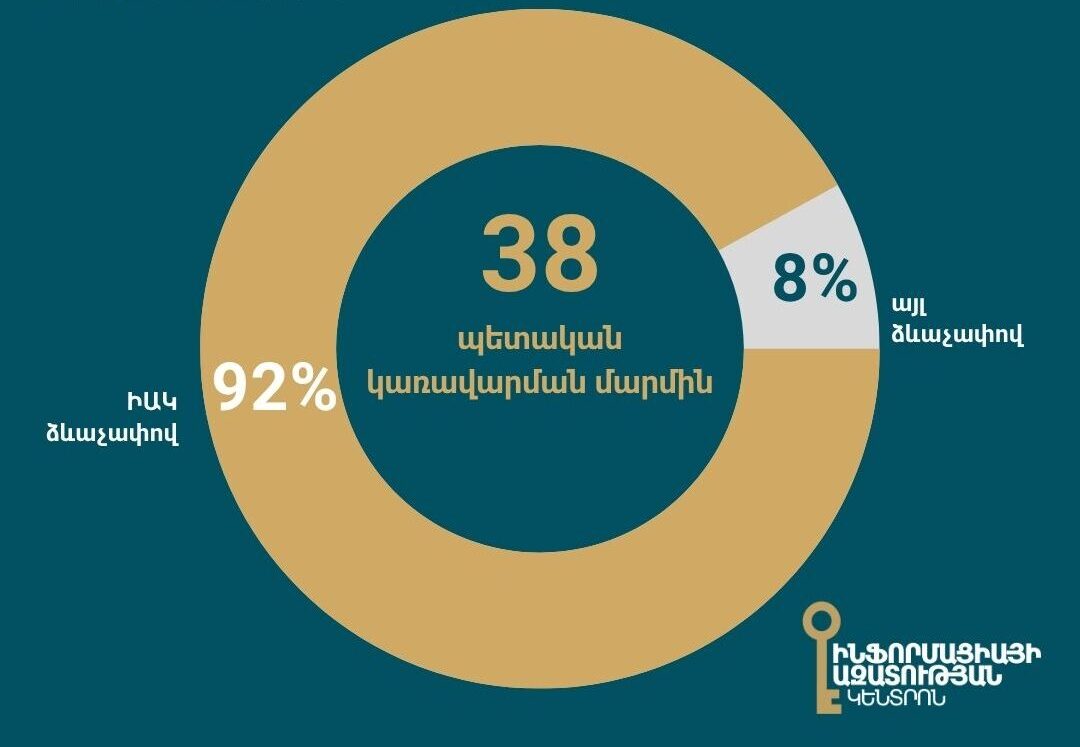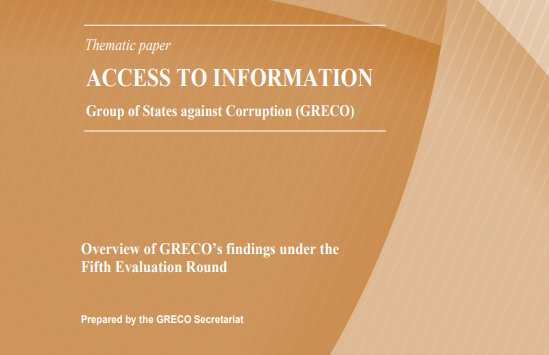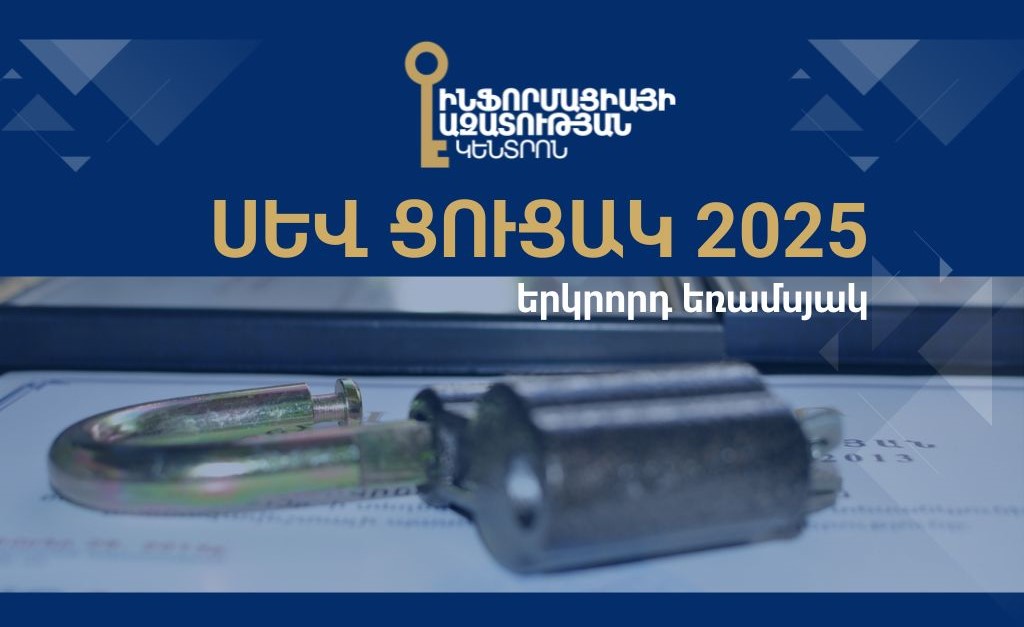FOICA President Shushan Doydoyan participated in the OGP Global Summit 2025 in Madrid, delivering a speech on the value of proactive access to information. In her speech, she reflected on the value of proactive access to information, highlighting its two key functions — preventing corruption and protecting human rights — emphasizing that transparency remains a cornerstone of public trust.
Here is Ms. Doydoyan’s full speech delivered at the meeting:
The Value of Proactive Disclosure
OGP Summit, October 9, 2025
It is my honor to speak at this important session on proactive disclosure. Proactive access to information is a tool for the civil society and people to fulfill their rights and mission and become resilient towards critical challenges the civic space faces at present. The concept of proactive information disclosure is not merely a goal but a crucial instrument for fulfilling human rights and combating corruption effectively.
Why Proactive Disclosure Matters?
ATI is essential for Combating Corruption: Corruption thrives in secrecy. That is why ATI laws are also called sunshine laws in the US. Proactive disclosure directly counters corruption by illuminating government operations and financial flows. Governments are obliged to publish information about matters that include: recruitment, public contracts, budgets, assets of public officials, funding of candidatures and political parties; and public procurement systems, many more. Proactive disclosure also allows civil society, journalists, and citizens to act as independent watchdogs, identifying red flags and holding officials accountable.
ATI is a core tool for ensuring protection of human rights: It helps people get timely, complete, relevant information they need to enjoy their rights. It ensures that the public has the information needed to participate in policy and decision-making processes. Proactive disclosure is linked to several core human rights, extending beyond the explicit “right to information” itself, like Right to Participate in Government or Economic, Social, and Cultural Rights (Information about public services, health programs, educational opportunities, when proactively shared, allows citizens to access and utilize these services effectively).
Proactive Disclosure in Practice
Freedom of Information Center vs. Armenian Municipalities (Case No. VD/10811/05/17)
The legal battle initiated by the Freedom of Information Center (FOIC) against 7 Municipalities of in Armenia provides a powerful and practical illustration. FOICA filed a lawsuit with the RA Administrative Court, seeking to declare the inaction of 7 municipalities unlawful and compel them to publish information. The FOICA diligently searched for these legally mandated disclosures on the official websites of each of the seven municipalities. Our study confirmed that none of the regional centers had published the 13 required groups of information.
This case directly highlights the systemic failure of public bodies to meet their legal obligations for proactive transparency. The absence of this information on public platforms means citizens and organizations face a significant barrier to understanding the operations of their local governments.
- Right to Participation: Without knowing the budgets, expenses, staffing, programs, and decisions of their local municipalities (the 13 groups of information often include such details), citizens cannot meaningfully participate in local governance. They cannot hold their local councils accountable for their spending or the effectiveness of their policies.
- Right to Effective Remedy: If information on procurement, tenders, or budget allocations is not public, it becomes exceedingly difficult to detect instances of maladministration, conflicts of interest, or potential corruption.
- Opacity Fosters Corruption: The deliberate or negligent failure to publish legally mandated information creates an environment ripe for corruption. If public officials know that details of contracts, expenditures, or staffing decisions are not easily accessible, the incentive for illicit activities increases, as detection becomes harder.
- Lack of Public Oversight: The very purpose of proactive disclosure is to enable continuous public oversight. When this is absent, the anti-corruption ecosystem is weakened, relying solely on reactive measures (individual requests) which can be slow and burdensome.
- Erosion of Trust: Such persistent non-compliance undermines public trust in local government and the rule of law. Citizens begin to suspect that information is being withheld for nefarious reasons, leading to widespread cynicism.
The legal journey for the FOICA was long. After 5 years of tens of court sessions, finally the Court of appeal fully satisfied the strategic lawsuit of the Freedom of Information Center against 7 municipalities, obliging them to publish all 13 groups of information mandated by the RA Law “On Freedom of Information” on their official websites. The court also ordered the municipalities to jointly compensate the FOICA for the state fees paid for the lawsuit and appeal.
This judgment marked the first judicial precedent in Armenia concerning proactive disclosure, where a public authority was legally compelled by a court order to fulfill its statutory duty to ensure proactive transparence.
Problem-setting
Armenian central Government runs more than 108 online platforms of digital services (such as e-request.am for submission of applications and requests of citizens, e-draft.am a unified portal where citizens can view, discuss, and give feedback on draft laws and regulations or arlis.am – the Armenian Legal Information System, giving free online access to laws, decrees, and other normative acts). Every government body has an official website. They also run 236 official pages in social networks including Facebook, X and Youtube.
Annually, the government makes publicly available hundreds of documents but the key questions are what is published, where and when it is published and how it is published to ensure that the proactive disclosure is really useful and meaningful.
- One key challenge is defining what kind of information governments should publish proactively. What counts as “information of public interest”? How to choose what should be prioritized? Of course, areas like education, health, social services, human rights, financial aid, and climate change are among the prioritized topics.
- Another key issue is how to publish this information voluntarily, what the publication format is, and which platforms to be applied by the government bodies to ensure that information is accessible and understandable for every citizen. We notice that the information disclosed is often fragmented, not standardized, and sometimes difficult for the average citizen to find it or understand. Sharing government information only matters if it’s useful to people. Not just to publish more government data—but to make it useful, timely, and relevant to people.
- The quality, timeliness, and completeness of proactively disclosed information are also crucial. Information that is outdated, incomplete, or buried in far corners of a website does nothing. Furthermore, the technical capacity for data management and publication within various state bodies varies considerably, leading to inconsistencies.
- Another issue is ensuring that exceptions (for privacy protection, national security, commercial confidentiality) are narrowly and clearly defined, and balanced with public interest.
- Lastly, Access to information became less popular, and it constantly remained out of the attention of the donor community, limiting its impact and engagement.
Solutions. What can be done to foster proactive disclosure
To tackle these challenges and risks, I see a few ways:
- To revitalize and reinforce access to information
Access to information is an uncomfortable thing for all governments in the world. And we know that it is a weapon in the hands of journalists and civil society to use and force the governments to be responsible and accountable. We should come up with solutions on how to shift and reposition it within the context of ongoing reforms, such as open data initiatives. In Armenia, we linked the advancement of ATI with the ongoing strategic communication reform, defining comprehensive and detailed communication protocols for processing information requests and proactive disclosure of information for government information departments.
- What steps should be taken to make proactive disclosure effective?
Governments should ensure:
- Legal guarantees – categories of information subject to proactive disclosure should be clearly and comprehensively defined by the national legislation
- Data must be usable in open, machine-readable, structured formats so reuse is possible. These formats should also be defined as a law requirement.
- Information must be timely, relevant, and sufficiently detailed to enable citizen participation, oversight, and corruption monitoring.
- Information must be complete and up to date.
- Identifying and Prioritizing High-Value Datasets: We should identify specific categories of information that have the greatest impact on anti-corruption efforts and public accountability. This includes detailed public expenditure data, comprehensive asset and income declarations of public officials, public procurement contracts, beneficial ownership registers for companies bidding on public contracts, and performance data for public services.
- Ensuring comprehensive and continued support to reshape the future of access to information
In recent years, we’ve observed a concerning trend: a noticeable decrease in donor support for initiatives focused on access to information, coupled with a broader decline in the donor community’s interest in this critical area. This shift is particularly troubling given that robust ATI frameworks are fundamental to good governance and anti-corruption efforts. The donor community should be communicated with a message that proactive disclosure ensures success and impact of the civil society, and it should be covered by their agenda more comprehensively. It is imperative that the donor community re-evaluate the strategic importance of access to information as an enabler of sustainable development and democratic resilience.
- Engaging Civil Society and Citizens
The role of civil society is central in pushing the government bodies to fulfill their obligation of mandatory publication and to comply with this fully, according to the meaning of proactive disclosure. Our organization, as the leading professional NGO in the field, is conducting regular monitoring of government websites to ensure that shortcomings are revealed and those bodies that do not regularly publish information are properly named and shamed. Strategic litigation is one of the most efficient tools to reinforce proactive disclosure. Along with strategic litigation cases, other public criticism measures are also helpful. The Golden Key and Rusty Lock award ceremony run by the FOICA is another tool for naming and shaming good and bad practices. The exercise of naming, shaming, punishing, and educating brings governments into the public spotlight.










